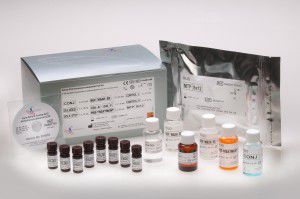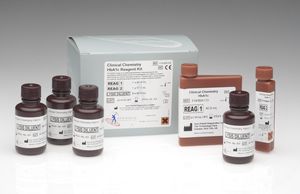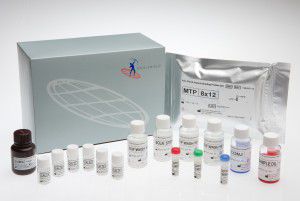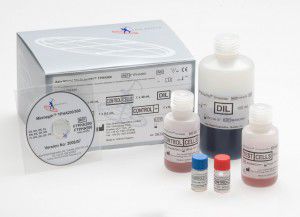
- Laboratory
- Laboratory medicine
- Cardiovascular disease test kit
- Axis-Shield PLC
Homocysteine test kit FHCY100for cardiovascular diseasesserumplasma
Add to favorites
Compare this product
fo_shop_gate_exact_title
Characteristics
- Applications
- for cardiovascular diseases
- Tested parameter
- homocysteine
- Sample type
- serum, plasma
- Analysis mode
- ELISA, automated
Description
Homocysteine (Hcy) is a thiol-containing amino acid produced by the intracellular demethylation of methionine. Hcy is exported into plasma where it circulates mostly in its oxidized forms bound to plasma proteins. Smaller amounts of reduced homocysteine and disulfide homocystine (Hcy-SS-Hcy) are present. Total homocysteine represents the sum of all Hcy species found in plasma and serum (free plus protein-bound).
Epidemiological studies have investigated the relationship between Hcy levels in blood and cardiovascular disease (CVD). A meta analysis of 27 epidemiological studies, including more than 4000 patients, estimated that a 5 µmol/L increase in Hcy was associated with an odds ratio for coronary artery disease (CAD) of 1.6 for men and 1.8 for women, or the same that is associated with 0.5 mmol/L (20 mg/dL) increase in cholesterol. Peripheral arterial disease also showed a strong association.
Patients with chronic renal disease experience an excess morbidity and mortality due to arteriosclerotic CVD. Elevated concentration of Hcy is a frequently observed finding in the blood of these patients. Although such patients may lack some of the vitamins involved in the metabolism of Hcy, the increased levels of Hcy are mainly due to impaired removal of Hcy from the blood by the kidney.
Drugs such as methotrexate, carbamazepine, phenytoin, nitrous oxide and penicillamine interfere with the Hcy metabolism and may give elevated levels of Hcy.
Exclusive to Axis-Shield and approved partners
CE-marked and FDA 510(k)-cleared
Easy-to-use ELISA technology, compatible with automated systems for improved throughput.
Catalogs
No catalogs are available for this product.
See all of Axis-Shield PLC ‘s catalogsRelated Searches
- Assay kit
- Blood assay kit
- Serum assay kit
- Immunoassay assay kit
- Plasma assay kit
- Blood rapid diagnostic test
- Infectious disease detection kit
- Serum rapid diagnostic test
- Plasma rapid diagnostic test
- Clinical assay kit
- ELISA assay kit
- Bacteria rapid diagnostic test
- IgG test kit
- Strip detection kit
- Laboratory detection kit
- Cell assay kit
- Antibody assay kit
- Clinical rapid diagnostic test
- Cardiovascular disease assay kit
- Biochemistry assay kit
*Prices are pre-tax. They exclude delivery charges and customs duties and do not include additional charges for installation or activation options. Prices are indicative only and may vary by country, with changes to the cost of raw materials and exchange rates.









